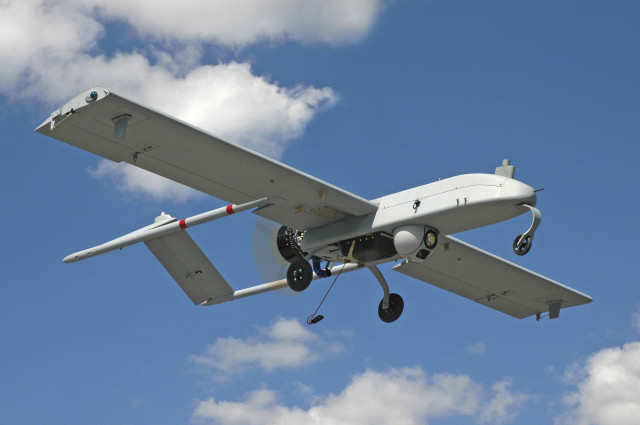Pakistan, US stumble in private talks over drones
Pakistani officials say negotiations between the US and Pakistan delayed because price too high, delivery slow.

The offer was made by US Defense Secretary Robert Gates during a trip to Islamabad in January 2010 but talks have failed to gain traction, with Pakistan privately voicing concern about what it says are exorbitant prices and a snail-pace delivery timeline.
A US military official in Islamabad said Washington was still working with Pakistan to decide what pilotless drone system its army needed. A Pakistani official familiar with the matter denied that was the hold-up.
"It's not because of product choice, that we're unable to make a decision," the Pakistani official told Reuters, speaking on condition of anonymity. "The negotiations were delayed because of two issues. One is the delivery timeframe, the other is the price."
The Pakistani official said the United States quoted a price well above market value for the surveillance drones and is stipulating that it may take up to three years for delivery.
The Pentagon declined to comment on the details of the talks but a spokeswoman said both sides were working hard to provide "the capability they need in order to be successful in this counterinsurgency effort." The aircraft would be delivered as quickly as possible, once a final decision is made, she said.
The disagreement comes at a delicate moment in US relations with Pakistan. The Pakistani official did not link the snag in negotiations over the drones to any tensions between Islamabad and Washington, however. USofficials said both sides were still working to complete the project.
Overpriced?
Gates offered Pakistan 12 Shadow drones, manufactured by AAI Corporation, a unit of Textron Systems. They are not the weaponised versions being used by the CIA to track and kill al Qaeda and Taliban insurgents in Pakistan but are used strictly for surveillance and intelligence gathering.
The Pakistani official questioned why the drones could not be supplied more quickly, given that the aim was to bolster Pakistan's ability to battle insurgents. "We need it immediately because we're in the middle of this war on terrorism," the official said.
Pakistani officials make no secret about their desire to have attack drones as well as the unarmed models. "We require primarily attack capability, not just surveillance. They should enhance our capability. Why are they providing us a capability which we already have?" a senior Pakistani security official told Reuters.
The official requested anonymity because of the sensitivity of the issue. The second official would not comment on the status of the talks but acknowledged Pakistani concerns that the US drones on offer were expensive.
A US military official had estimated last March that Pakistan could get its surveillance drones within a year. Given the current impasse in negotiations, that now looks very unlikely. "At present we are in the early stages of defining the Pakistan-specific requirements," said Lieutenant Colonel Michael Shavers, a spokesman at the US military's Office of the Defense Representative-Pakistan.
Lieutenant Colonel Elizabeth Robbins, a Pentagon spokeswoman, said there was "no set timeline from the start of discussions to a final decision."



















COMMENTS
Comments are moderated and generally will be posted if they are on-topic and not abusive.
For more information, please see our Comments FAQ